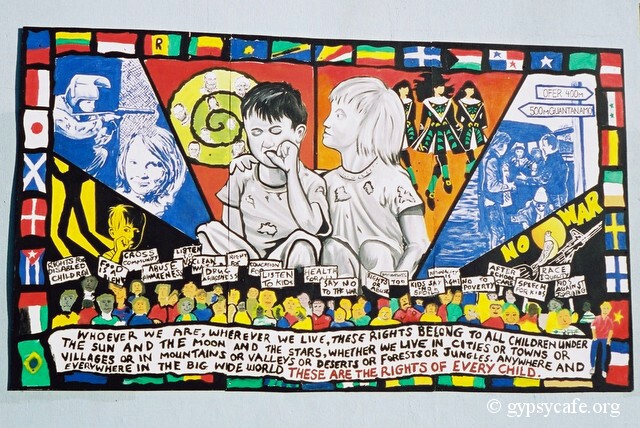
The Yin and Yang of Spirituality
Carl Jung is famous for having brought the concept of working on shadow elements within the psyche into Western psychotherapy, although the process of self-therapy, self-transformation and psychic self-evaluation with subsequent spiritual elevation is indeed a very ancient practice. Advanced practice was perhaps considered to be found mainly in the realm of shamanism, priesthood and other high level spiritual roles. However, ancient civilizations and cultures integrated the identifying and processing of shadow characteristics also into their general spiritual and cosmological belief systems, but we find that these aspects are often not featured in popular spirituality today.
By having become relatively unconscious of the depth and nature of the individual shadow (which, according to Carl Jung, is a back-door to the collective shadow), behaviours and tendencies related to it have become more socially accepted. Unfortunately, the commercialization of spirituality means that the positive, pleasant and easy elements of being spiritual are usually focused upon. The deeper, underlying issues often remain unexplored, so the necessary (challenging) transformation processes are not always engaged in and the shadow elements remain submerged and active or are only temporarily resolved until it appears again later. This means that modern forms of spirituality often serve predominantly as forms of spiritual entertainment or as vehicles for spiritual escapism without reaching its full depth or potential.
Perhaps if we had been paying more attention to the collective shadow elements within our societies (as a priority) since the end of the Second World War, as Carl Jung had strongly suggested, we may have been more prepared for some of the crises we are experiencing at present and those yet to come. However, as Jung also said: large portions of society remain blissfully unaware of how world peace and stability hang on a fine thread (then and now). We have never been this connected as a species in our entire history and so distracted at the same time, mostly by choice.
The awareness that all citizens of the world are responsible for contributing towards world peace and maintaining it is somehow lacking. We are living in one of the most prosperous periods in time in the history of the world, but with the developed world being far ahead. In terms of power and influence, countries which possess the most of it, carry the highest responsibility. With power comes responsibility and it is the duty of the citizens of powerful countries to remind their politicians and leaders of the responsibility to act peacefully for the greater good of humanity, not least because virtually all powerful nations put themselves forward as democratic and peace-loving.
On a personal level: Dr Jung explained in a documentary interview, Matter of Heart, that we are all uniquely born with certain characteristics and attributes within a certain historical and cultural context. That means that we each have a personal responsibility to reach the highest state possible as an individual person within that context. By doing so we participate fully and play our part to the best of our ability as individual elements within the large organism that is humanity, in the theatre of life and the universe.
The very first step towards that process is having respect for yourself (your Self, not your ego) and that process starts within. The nature of that respect is respect for your higher-self and that higher self can take a third person view to approaching and resolving internal and external conflicts. The advantage of the third person view is that almost everything can be viewed as “theatre”, (but) with a proactive, problem solving objective in mind. In other words, the spectator is observing in order to learn how to improve, adjust, or resolve his or her own approach or behaviour by comparing with what is being observed. Without taking the third person point of view, what is being observed is often copied instead of transcended.
The higher-self is beyond the ego and has a much wider perspective and expanded vision. By living our lives from that position we are the closest we can get to non-duality on a permanent basis. A person who is peaceful within, will shun conflict. A person who comes from the heart, won’t have the heart to harm another – and will motivate others not to do so either. Those who have maintained (and have respect for) their own traditions and values within their own communities and countries, will have respect for other nations and groups who have likewise maintained theirs within their own countries or regions.
A tradition-less, value-less, culture-less world is a world with sails falling in the winds, a world drifting without an anchor. It is a destabilized world with no direction, no heart and no spirit. It is a world without a stable core, without balance – the balance within missing. That balance within the world can only be found within each individual person. The more balanced all of us become, the more balanced the world outside will be.
Within the framework of international cooperation and conflict resolution, in the context of a balanced world, nations who come from histories of dominance would do their best to refrain from returning to or repeating such history – and take the High Road. Nations, cultures or groups with histories of having been harmed or persecuted or wronged, would refrain from enacting retribution or turning to the same methods as those who have harmed them – and take the High Road.
The above is, of course, a tall order, but when we observe and learn from the theatre of history, taking the high road is the only road which will lead to genuine progress, harmony and balance, as opposed to a false sense of progress that focuses on a narrow view of who is the most powerful or “progressive” and therefore the most “exceptional”. This approach is usually at the disadvantage of others and tends to contribute to the perpetuation of the cycle of violence indefinitely.
Mutual respect amongst nations is the bedrock of international peace and stability, but it relies on everyone participating equally. Similarly, for democracy to work a respect for its institutions is required. Over and above that, democracy relies on a certain level of moral responsibility and conscience-based ethics being present within those that ascribe or commit to it and it naturally relies on a basic understanding of what democracy means in the first place.
By considering the rights of children, within the context of various conflict zones around the world and also within our own societies in relation to what they are exposed to, we may be able to reflect on how far we have drifted away from our claims of being humanitarian, peace-loving, democratic and a force for good.
Perhaps it is time for all peace-loving peoples to request their governments to kindly de-escalate all tensions which could potentially lead to major conflicts and the harming of civilians and children. We owe it to the future of a stable and balanced world. We owe it to the future of our children and to their children’s children. Not least, we owe it to our higher-selves and the legacy that we wish to leave behind.
“The human being who starts by withdrawing his own shadow from his neighbour is doing work of immense, immediate political and social importance.” – Carl Jung (as quoted by Sir Laurence v.d Post)
Also see: The Shift Of The Stages
J.J. Montagnier © 2016. All Rights Reserved. Gypsycafe.org
Jean-Jacques M is an international travel writer and photographer – he writes under a pen name. He has a career in adult education, is a student of psychology and philosophy and is involved in non-commercial life coaching. The views and opinions expressed in this article are those of the author.


5 Comments
Good posts and nice blog .. Congratulations
Welcome to see my creations:
http://paintdigi.wordpress.com
Thank you for visiting – nice photographs on your blog.
I really enjoyed this thought-provoking article, especially paragraph 4 and 7 to the end. I think there are many people around the world who know in their hearts what you have so eloquently put into words, and they try to live their lives accordingly. Unfortunately they aren’t the ones running the show.
Marilyn, thank you for your feedback and for being specific.
I think you are right, but I also think a lot of people simply
live on “auto-pilot” as someone (a psychologist) put it to me once.
Although there are very many people who support democracy and are
peace loving (and spiritual) in a general sense, not many people
actually express a dislike for war (openly at least), and so it
may be that many people are actually ok with it. It’s hard to tell,
but not nearly enough people show a disdain for it.
Marilyn, if you are interested – I published this article on WritersBeat and quite a vigorous debate came out of it – you may enjoy going through some of the comments: there are some criticism and some agreement:
http://writerbeat.com/articles/16936-The-Yin-and-Yang-of-nbsp-Spirituality-and-the-Future-of-Humanity